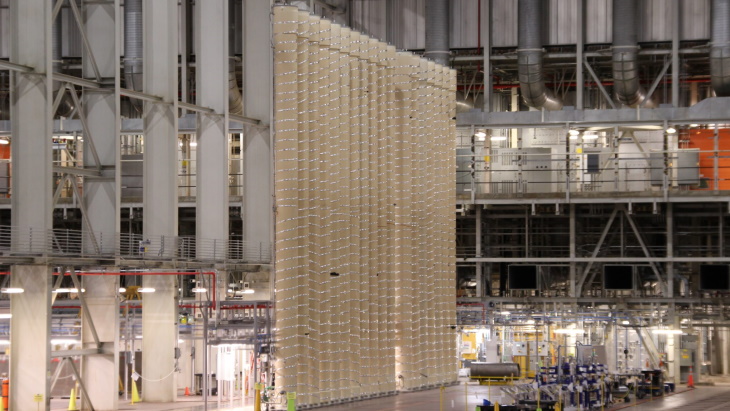
HALEU fuel contains uranium enriched to between 5% and 20% uranium-235 - higher than the uranium fuel used in light-water reactors currently in operation, which typically contains up to 5% uranium-235. It will be needed by most of the advanced reactor designs being developed under the US Department of Energy's (DOE's) Advanced Reactor Demonstration Program. But the lack of a commercial supply chain to support these reactors has prompted the DOE to launch a programme to stimulate the development of a domestic source of HALEU.
Centrus began construction of the demonstration cascade of 16 centrifuges in 2019 under contract with the DOE, and last year secured a further USD150 million of cost-shared funding to finish the cascade, complete final regulatory steps, begin operating the cascade, and produce up to 20 kg of HALEU by the end of this year.
In June, Centrus announced it had successfully completed its operational readiness reviews with the US Nuclear Regulatory Commission (NRC) and received NRC approval to possess uranium at the Piketon site - the last major regulatory hurdle prior to beginning production.
Centrus is now conducting final system tests and other preparations so that production can begin in October.
"This will be the first new US-owned uranium enrichment plant to begin production since 1954," said Centrus President and CEO Daniel Poneman. "What better way to commemorate the 70th anniversary of President Eisenhower's historic Atoms for Peace initiative than to restore a domestic uranium enrichment capability that will support our energy security and clean power needs, enable long-term national security and non-proliferation goals, and generate great new jobs for American workers."
Centrus said the capacity of the 16-centrifuge cascade will be modest - about 900 kilograms of HALEU per year - but with sufficient funding and offtake commitments, the company could significantly expand production. It says a full-scale HALEU cascade, consisting of 120 centrifuge machines, with a combined capacity to produce approximately 6000 kilograms of HALEU per year, could be brought online within about 42 months of securing the necessary funding. Centrus said it could add an additional HALEU cascade every six months after that.